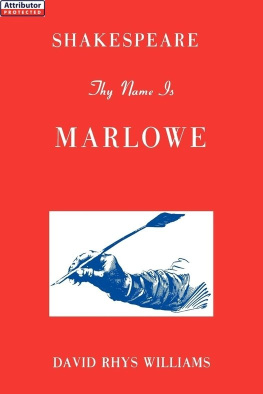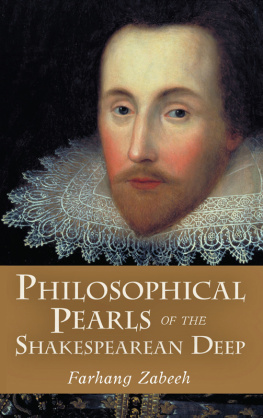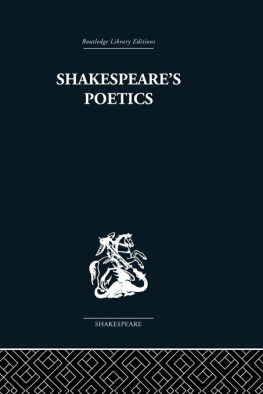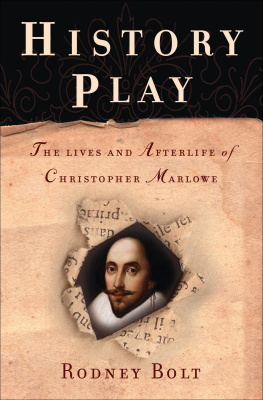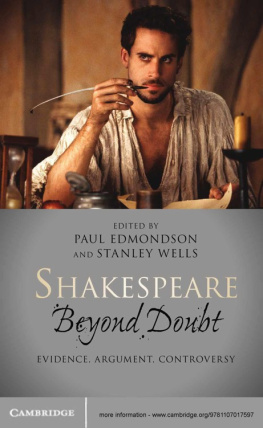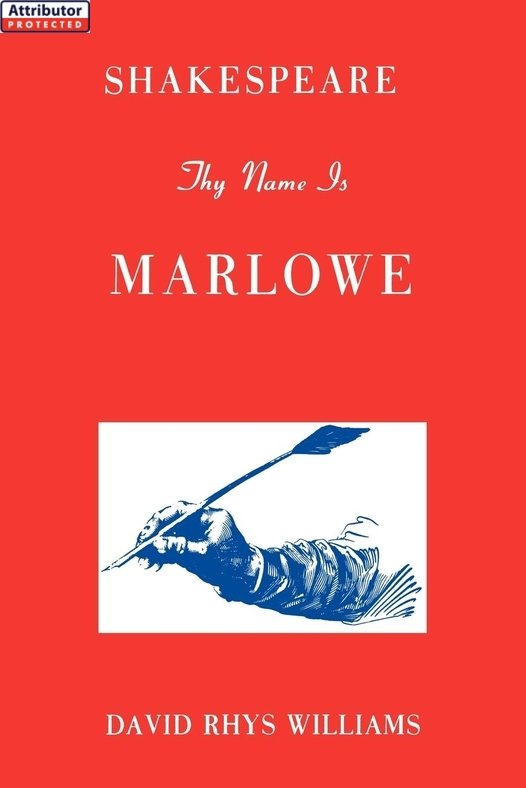David Rhys Williams - Shakespeare Thy Name Is Marlowe
Here you can read online David Rhys Williams - Shakespeare Thy Name Is Marlowe full text of the book (entire story) in english for free. Download pdf and epub, get meaning, cover and reviews about this ebook. year: 1966, publisher: Philosophical Library, genre: Detective and thriller. Description of the work, (preface) as well as reviews are available. Best literature library LitArk.com created for fans of good reading and offers a wide selection of genres:
Romance novel
Science fiction
Adventure
Detective
Science
History
Home and family
Prose
Art
Politics
Computer
Non-fiction
Religion
Business
Children
Humor
Choose a favorite category and find really read worthwhile books. Enjoy immersion in the world of imagination, feel the emotions of the characters or learn something new for yourself, make an fascinating discovery.
- Book:Shakespeare Thy Name Is Marlowe
- Author:
- Publisher:Philosophical Library
- Genre:
- Year:1966
- Rating:3 / 5
- Favourites:Add to favourites
- Your mark:
Shakespeare Thy Name Is Marlowe: summary, description and annotation
We offer to read an annotation, description, summary or preface (depends on what the author of the book "Shakespeare Thy Name Is Marlowe" wrote himself). If you haven't found the necessary information about the book — write in the comments, we will try to find it.
Who was William Shakespeare? Many scholars have speculated over the mystery of Shakespeares identity. Was he really just a mana poet, playwright, and favorite of the Queen? Was he a collective of writers creating the lasting works of art under this pen name? Or was he someone else entirely? The discussion of Shakespeares true identity remains a topic of debate to this day, and scholars have claimed again and again that the famous bard was simply a pen name. But for whom? Author David Rhys Williams weighs in with his controversial book Shakespeare Thy Name is Marlowe. Rhys Williams summarizes the evidence and arguments that have led many contemporary scholars of the Elizabethan period to the conclusion that the man known as William Shakespeare was none other than Christopher Marlowe. One of the highlights of Rhys Williamss study is his explanation of how the charge of heresy that was leveled against Marlowe in 1593 probably led to his appropriation of the pseudonym William Shakespeare as a protective deviceone which permitted him to escape death at the stake and to continue the writing of poems and plays. Williams consults multiple sources and Marlovian scholars on the subject, and comes to his shocking conclusion: that Shakespeares friend and contemporary, the poet and dramatist Christopher Marlowe, may have written Shakespeares tremendous and far more famous oeuvre. Discover the truth for yourself in this probing and thorough essay.
David Rhys Williams, in addition to being a Marlovian scholar, was an American Congregational and Unitarian minister. He published widely on religion, theism, and nonviolence, including three books, World Religions and the Hope for Peace, Faith Beyond Humanism, and Shakespeare, Thy name is Marlowe.
David Rhys Williams: author's other books
Who wrote Shakespeare Thy Name Is Marlowe? Find out the surname, the name of the author of the book and a list of all author's works by series.

